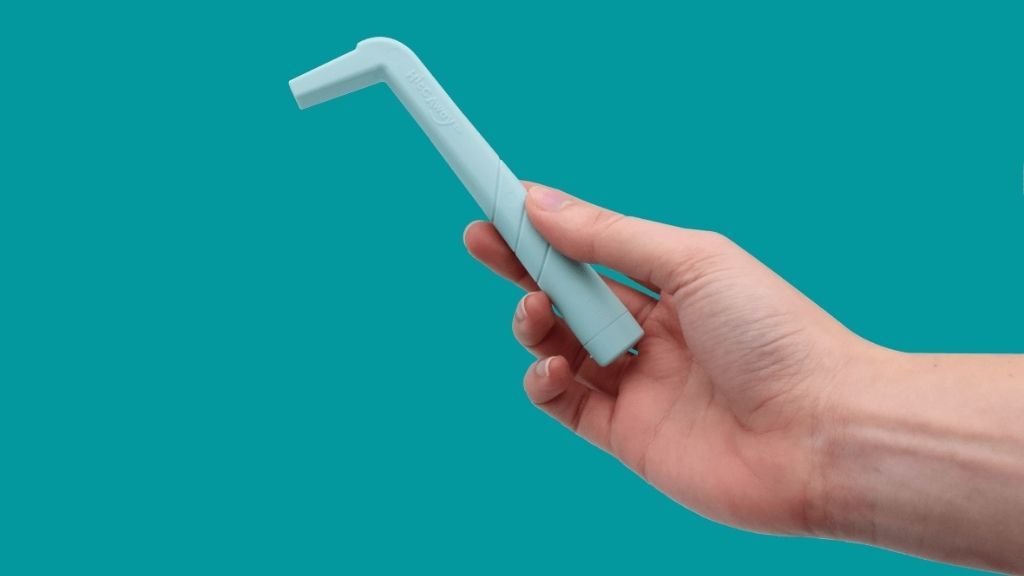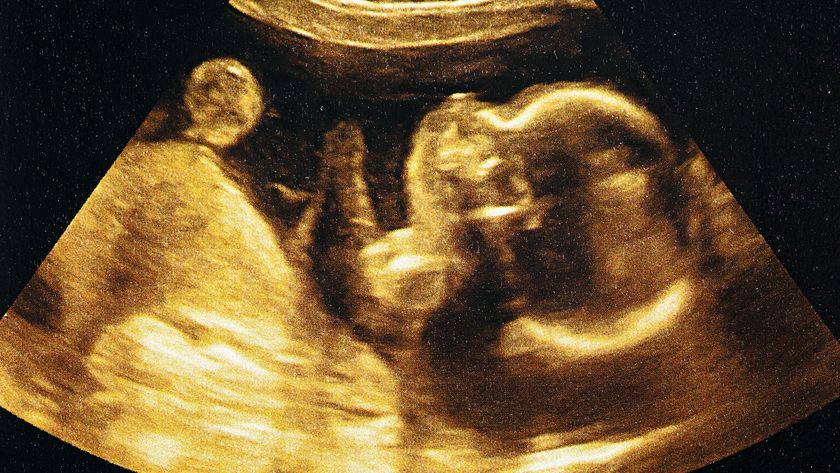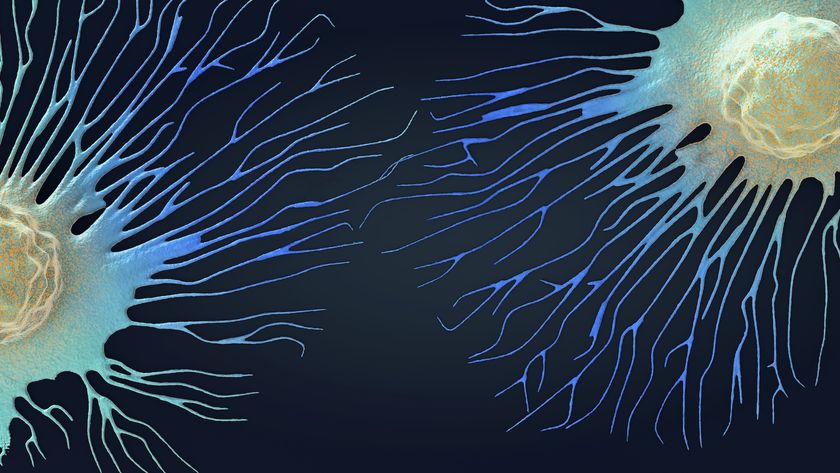Weird gadget may cure hiccups, early study suggests

A simple device could be the solution to a deeply annoying problem that's plagued humanity for millennia: the hiccups.
When a bout of hiccups strikes, the brain stem shoots signals to the diaphragm that cause the muscle to contract and pull a gulp of air into the lungs; then the epiglottis, a flap of tissue behind the tongue, flips over to cover the windpipe and triggers the characteristic "hic" sound that give hiccups their name, Live Science previously reported. The involuntary reflex may serve some purpose in fetuses and newborns, in that hiccups may help train the brain regions and muscles involved in breath control. But as the "hics" serve no apparent purpose in older humans, at some point, they're mostly just a nuisance.
A quick internet search generates a slew of home remedies for hiccups. Some of the best-known tricks include holding your breath, drinking water from the far side of a glass and eating a spoonful of granulated sugar, while some case studies have suggested stranger cures, such as rectal massages and orgasms.
Related: Can a scare cure the hiccups?
But none of these solutions are backed by robust scientific data, and the typical home remedies "are plagued by unclear instructions, inconsistent performance and poor effectiveness," researchers wrote in a new study, published Friday (June 18) in the journal JAMA Network Open. "There is a need for a simple and effective method to stop hiccups," they wrote.
The study's senior author, Dr. Ali Seifi, an associate professor of neurosurgery and the director of neurocritical care at the University of Texas Health Science Center at San Antonio, said he saw a need for a hiccup remedy while working in the intensive care unit.
"Many patients with brain injury, stroke, and cancer chemotherapy patients get hiccups on my floor," he told Live Science in an email. For example, one of his patients developed hiccups after undergoing neurosurgery and became increasingly frustrated as the nurses helped him through various remedies, such as drinking from the far side of a cup. Just days later, Seifi got hiccups while delivering a speech to medical students, and in that frustrating moment, he "really decided that I have to find a definite, but simple solution," he said.
Sign up for the Live Science daily newsletter now
Get the world’s most fascinating discoveries delivered straight to your inbox.
So Seifi invented a device called the forced inspiratory suction and swallow tool, or FISST. (He has also patented the tool and branded it under the somewhat catchier name "HiccAway.") The device is a rigid plastic tube with a mouthpiece on one end and a pressure valve on the other. The user operates the tool by placing it in a half-full glass of water, "forcefully" sucking water through the mouthpiece and then swallowing the liquid.
The act of sucking up the water stimulates the phrenic nerve, which sends motor signals to the diaphragm, and the act of swallowing stimulates the vagus nerve, which helps control unconscious activity of the digestive tract and connects to the epiglottis, Seifi said. "Hypothetically, when we keep these two nerves busy with a different duty, they will have no time to mess up and generate hiccups," he said.
When people use FISST, "the hiccups are usually expected to stop instantly in one to two attempts," the team wrote in their report.
To put the device to the test, the researchers ran a crowdfunding campaign in 2020 in which volunteers could receive a free FISST to try. In all, 249 participants took part in the study and completed questionnaires in which they rated their experience on a scale from 1 to 5, with 1 meaning "strongly in favor of home remedies" and 5 meaning "strongly in favor of FISST." The participants also rated their satisfaction with the product, in terms of its feasibility compared with home remedies.
More than 69% of the participants reported having hiccups at least once a month, with most bouts of hiccups lasting less than two hours. More than 90% of the participants rated FISST as superior to home remedies, in terms of both effectiveness and feasibility. These ratings were consistently high regardless of a given participant's hiccup frequency or duration.
While the results hint that FISST works better than other hiccup-relieving tactics, the study is limited in that it relied on subjective rating scales and lacked a control group, meaning a group of individuals who did not use the tool, the authors noted.
"Future studies will need to assess the efficacy of FISST in randomized clinical trials," in which one group gets a sham device, while the others test the real one, they wrote. Seifi noted that the team has already initiated such trials in the U.S., Japan and Switzerland.
Originally published on Live Science.

Nicoletta Lanese is the health channel editor at Live Science and was previously a news editor and staff writer at the site. She holds a graduate certificate in science communication from UC Santa Cruz and degrees in neuroscience and dance from the University of Florida. Her work has appeared in The Scientist, Science News, the Mercury News, Mongabay and Stanford Medicine Magazine, among other outlets. Based in NYC, she also remains heavily involved in dance and performs in local choreographers' work.











